Podcast Ep #20: Jewish Travel Learning with Tamid of Hebrew College
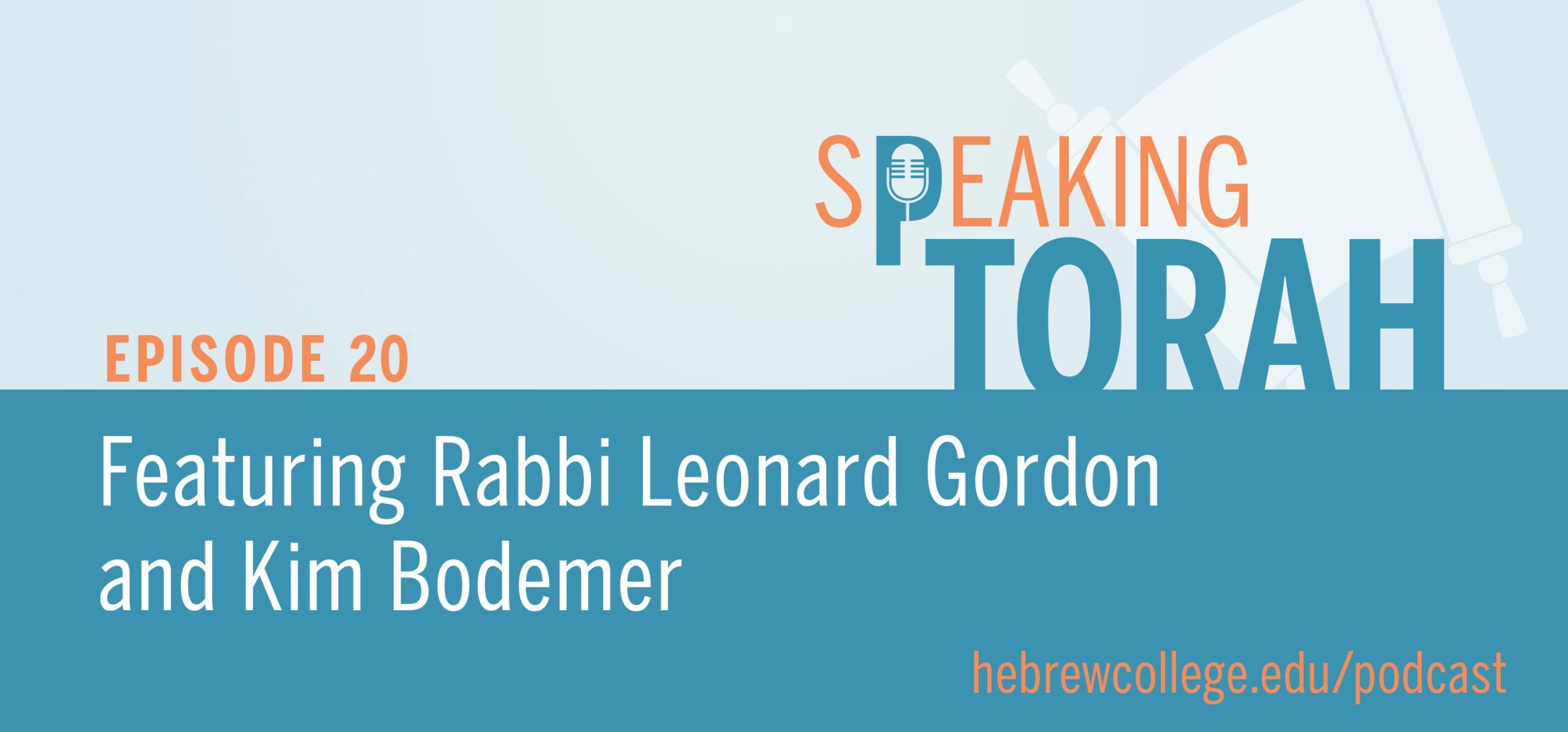
Travel learning really gets to the core of what we try to do with Tamid of Hebrew College, which is really to touch our learners — their head, their heart, their soul, and their body. One of the things that makes our travel experiences unique is that we are seeing major historical sites, we’re learning the history, but we’re looking at them through this Jewish lens.
– Kim Bodemer
Have you ever wondered how traveling to the places where Jewish history unfolded can deepen your understanding and connection to Judaism? In this episode of Speaking Torah, we explore the educational power of travel and learning with Rabbi Leonard Gordon, instructor for Tamid of Hebrew College, and Kim Bodemer, Tamid’s director.
Rabbi Lenny Gordon shares insights from leading a Jewish Discovery Tour to Spain and previews an upcoming May 2025 journey to Central Europe, where the group will trace the roots of secular Judaism and confront the complex legacy of antisemitism. Through visiting key sites, studying influential thinkers, and immersing themselves in the culture, travelers gain a richer perspective on Jewish history and identity. (Learn more about the trip and sign up here.)
Tune in to discover how Tamid of Hebrew College is creating unique travel learning experiences that engage the head, heart, soul, and body. From meeting with civil rights leaders in the American South to imagining Jewish life in medieval Spain, these trips offer a chance to build community, challenge assumptions, and find renewed inspiration for building a more just world.
What You’ll Discover from this Episode:
- How traveling to historic Jewish sites can deepen your understanding of Jewish history and culture.
- Why Spain and Central Europe offer rich opportunities for exploring the roots of secular Judaism and the impact of antisemitism.
- The importance of studying influential Jewish thinkers like Kafka, Freud, and Herzl in the context of their time and place.
- How the Neolog Judaism movement in Hungary might have reshaped modern Judaism if not for the Holocaust.
- The power of encountering the Divine in others and working together for positive change, as exemplified by Black civil rights leaders.
- Why travel learning aligns with Tamid of Hebrew College’s mission to engage learners’ head, heart, soul, and body.
Featured on this Episode:
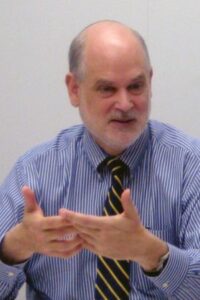
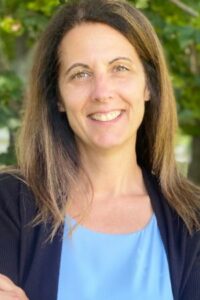
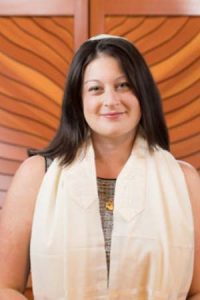
A special thank you for this episode’s musical contributions:
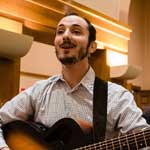
Jackson is the Base Rabbi for Boston. Collaboration and creativity are at the core of his desire to cultivate meaningful Jewish experiences. Through his work, Jackson built singing prayer communities across the country in California, New York, and Boston. He also founded and built a Judaica brand, Hiddur Mitzvah, with his partner and fellow artist Rachel Jackson and sings with R’ Josh Warshawsky in the Chaverai Nevarech Band.
Esa Einai (Psalm 121:1)
Music by Jackson Mercer
Guitar and Melody by Jackson Mercer
Harmonies by Cantor Rosalie Will, Ilana Sandberg, Rabbi Micah Shapiro, Rabbi Josh Warshawsky, Noah Diamondstein, Ryan Leszner, Eliana Light.
Klimovitcher Nigun, Chabad
Rabbi Jessica Kate Meyer `14 (voice, violin) Hebrew College Rosh Tefillah & Artist-in-Residence
Julia Sabra (voice, guitar) Hebrew College Rabbinical Student
Sam Tygiel (voice, guitar, flute) Hebrew College Rabbinical Student
Hankus Netsky (piano)
Grantley Smith (percussion)
Rabbi Jessica Lowenthal: Welcome to Speaking Torah. I’m your host, Rabbi Jessica Lowenthal, spiritual leader of Temple Beth Shalom in Melrose, Massachusetts, and 2019 graduate of Hebrew College. In this podcast, Jewish leaders from around the world, Hebrew College faculty alumni, and students discuss how Torah can help us navigate the most pressing issues of our time. Together, we explore the way Torah can help us approach the world with creativity, healing, and hope.
This year, Hebrew College launched a renewed and expanded set of adult learning programs under the name Tamid. The Hebrew word Tamid means perpetual or eternal, and we chose it because we believe that lifelong Jewish learning connects us to an enduring sense of meaning and purpose. It honors our past, uplifts our present, and inspires us to face the future with a spirit of creative possibility and hope.
In this season of the podcast, we are focusing on some of these experiences. This week, we are pleased to talk to Tamid of Hebrew College instructor, Rabbi Lenny Gordon, who led our Jewish Discovery Tour of Spain in spring 2024, and will be leading our next Jewish learning journey to Central Europe in May 2025, and Hebrew College’s Tamid director, Kim Bodemer.
Tamid of Hebrew College recently started offering domestic and international learning trips and optional supplemental courses to its offerings. First with a trip to Spain, then a civil rights trip to the American South through a Jewish lens, and next spring a Jewish journey to Vienna, Budapest, and Prague. Often, we learn about different times and places from our own homes. The opportunity to bring that learning to life, walking the streets, noting the architecture, meeting the people of these countries is truly a gift.
—
Rabbi Jessica Lowenthal: Lenny, how will the Central Europe course and travel experience balance learning about antisemitism with other positive and creative forces in central European Jewish life? And how does this compare to other generational divides in other points in American history?
Rabbi Leonard Gordon: Travel is transformational. When you go and see a place and are actually where history happened and focus on the individuals and the flow of Jewish history through those places, the experience is so much deeper than reading a book or, you know, even a very good class.
So we chose as our first destination, Spain. And in part, that was because of where we are right now politically in the world. Part of what attracted us to studying in Spain was the fact that during the 9th, 10th, and 11th century, something very unique happened there. Jews, Christians, and Muslims were studying together, working together. It was imperfect. It was not all wonderful. There were moments of stress and tensions, but still, by and large, for 300 years, something rather amazing happened.
And so we went to southern Spain as well as to Madrid, and we visited the sites where that took place. And Spain has gone way out of its way to make its Jewish sites available and accessible. And Spanish individuals, even people who are not Jewish, in fact, by and large people who are not Jewish, have set up museums of the Jewish cultural heritage of Spain.
What’s happening? Spain is trying to figure out, how was modern Spain created? And to what extent does modern Spain need to look back on its Islamic and Jewish background as part of what created what became Spain?
This May, we are planning a trip to Central Europe. You might ask, well, Central Europe, that’s rather random after a trip to Spain. But one of the things that I want to do on this trip is talk about the connections between the Iberian Peninsula and what happened to the Jews there, and what happened in Central Europe hundreds of years later. And the lens through which we’re going to be looking at that is secularism.
What was it about the Jewish people and Jewish thought that led to the explosion of secular Judaism after the French Revolution in modern times. And that’s what we’re going to be looking at in the three major cities of Central Europe. We’re going to be going to Prague, Budapest, and Vienna. And in the course that’s going to be leading up to that trip, we’re going to look at one author from each of those cities.
So for Prague, we’re going to look at the famously alienated author Franz Kafka and how Kafka becomes sort of the basis for so much of Jewish secular writing and artistry in the modern world. And we’ll talk about who Kafka was, what it meant to be a Jew in a Catholic country, a German speaker in a Czech speaking country, and somebody who had a fatal illness and died young. So something happened that was not his fault, that he knew was going to cause his death, and really revealed for him something of the absurdity and dangers of this world. So that was Kafka.
In Vienna, we’re going to look at Sigmund Freud. And Freud, of course, he died in 1939 on the eve of the Holocaust. He predicted and understood the forces that were driving Europe towards death and destruction, and really reimagined a way to create safety for the Jewish people by dealing with the communal neuroses that were impacting Western European culture.
And then finally in Budapest, we’re going to look at Herzl, another great secular Jewish figure trying to solve the problem of the Jews in the modern world. He was doing it politically, not psychoanalytically, and the creation of modern Zionism. So those are the three cities we’re going to look at.
And what I will try to put together is how that wondrous moment in the Iberian Peninsula hundreds of years earlier set the stage for what would be the flourishing of secular Judaism in modern times. I would add also that we chose these cities because of the rich Jewish story, because of the complexity, and because these are gorgeous cities with amazing culture.
Rabbi Jessica Lowenthal: How will the accompanying course fit in?
Rabbi Leonard Gordon: My course that will be next spring will focus on this issue of secularism in these cities. The trip will also have a second focus, which is on the story of anti-Semitism and the Holocaust. So we will be also looking at that. The story of Hungarian Jews is actually an incredibly telling story about what was happening in the final year of World War II. We will do some reading on the background of Central European Jewry, so we’ll get the history.
Then we will do some study about each of the three cities. Then the second session would be on one author where we’ll read some work by that author and discuss it. That’s the way we’re planning to organize it. And obviously on the trip, you’ll see some of the places that were important, like for Kafka, he writes a novel called The Castle. Well, there is a castle on a hilltop overlooking Prague, and we will see it and we’ll think about how did waking up and seeing that castle up on the hill, how might that have shaped his sensibility and sense of alienation and sense that there’s this frightening world out there.
For Freud, we’re going to get a sense of Vienna. Vienna is a very… Actually, all three of these cities are very complicated cities, Jewishly. When you go to Vienna right now, you get a sense that Austria were the first victims of the Nazis rather than perpetrators of the Holocaust themselves. And unlike Berlin, in Vienna, you do not get a sense of a culture that is trying to come to terms with their past.
There is no museum, or at least there was not last time I was in Vienna, that deals with the experience of what happened to the Jews of Vienna. So we will actually probe the mixed legacy of each of these cities.
Rabbi Jessica Lowenthal: What are some of the other ways you prepare travelers for these discovery tours?
Rabbi Leonard Gordon: Part of the preparation for the trip and part of the class will be asking people to see films. We’re not going to be able to have the opportunity to go together, but all things that are available on streaming services. One of the films that actually does the whole history of Hungarian Jews is a film called Sunshine. It’s from the German name of the family, Sonnenschein, and it is a family that has a secret recipe for a hard liquor. The story traces this family as they make money, as the recipe gets lost and found and lost again.
It’s also a story of Hungarian Jews assimilating. One of the Jews who is Ralph Fiennes, who’s the star of the movie, plays a Hungarian Jewish fencing star who was the award winner at the Olympic Games, the hero of all of Hungary. And then when the Nazis take over, and he says, I was the champion fencer, and the Nazi just slaps him around and ultimately kills him and says, you’re nobody, you’re a Jew. So it’s a very, you know, it’ll give you that whole hundred years of what happened, much like Leopoldstadt, covering a lot of ground. And you see what the promise and the failed promise of assimilation as an ideology was.
Rabbi Jessica Lowenthal: Are there any common misconceptions or misunderstandings of Central and Eastern European Jewish culture that you hope to explore and reconsider with learners and travelers?
Rabbi Leonard Gordon: Yeah, I think for many educated Jews, the first person you think about when you think about Central Europe is Rabbi Loewy of Prague and the Golem and all of those stories. And that sense that this was part of the world of traditional Judaism. And what we’re trying to show is that that was complicated, that there was traditional Judaism and Rabbi Löwe was in Prague, but we’re going to be emphasizing this other aspect of the Central European Jewish experience.
Let me add one other thing about Hungary. In Hungary, before World War II, there was a new form of Judaism that was developing called Neolog Judaism.
Neolog Judaism was brilliant. It was liturgically conservative, but it was about the music. It was about choirs and organs and adding high-style music to the service, sticking with the traditional liturgy, egalitarianism, more mixed seating, so that it was about trying to combine some elements of reform with more traditionalism in the liturgy and with wonderful music.
So, there was a synagogue built in Budapest, the Dohány Street Synagogue, that a rabbi from Mishkan Tefillah, here in Boston, was sent to Budapest after World War I to do a best practices analysis for the conservative movement, Rabbi Rabinowitz came back to America and established what would become the norms for conservative Judaism in New England, which were to have an organ and a choir, which was not the norm in the New York area, but it became the norm in the north and in New England.
The Holocaust ended Neolog Judaism as a vibrant, ongoing development. Had Neolog Judaism continued to grow and develop, it might have created a form of Judaism that combined traditionalism and social innovation in a way that would’ve really split the difference between traditional conservative Judaism and reform. Who knows what would have happened to Judaism, to liberal Judaism, had that not been frozen by the Holocaust.
So, the Dohány Street Synagogue still exists, and we’re going to visit it. I’ve asked that I will give a talk there about Rabbi Rabinowitz and the foundation of New England conservative Judaism in Budapest. Who would have known? It’s just, it’s, you know, it’s wild.
Rabbi Jessica Lowenthal: Kim, why start offering travel learning now?
Kim Bodemer: So I think that travel learning really gets to the core of what we try to do with Tamid of Hebrew College, which is really to touch our learners, their head, their heart, their soul and their body. And classroom experiences in and of themselves can do pieces of this, but travel gives us the opportunity to really live that in an important way, because we’re physically going to these places that we’ve learned about in a classroom setting, and we’re imagining what life was like in those places during that time. So it feels like it really encompasses all four of those pieces that we’ve identified as being important to us.
One of the things that makes our travel experiences unique is that it’s through a Jewish lens. So these places that we’re going, we are seeing major historical sites, we’re learning the history, and we’re looking at it through this Jewish lens.
And this travel company that we’ve been using for international travel has so much experience and really has just so much to offer. And when you combine that with our own faculty member who knows our students and who knows Hebrew College and has this sense of North American Jewry, I think that’s such a winning combination and offers something that’s truly unique that you really can’t get in other places. Not to say those trips aren’t great and amazing, it’s just different.
Rabbi Jessica Lowenthal: How do you decide on the trip destinations?
Kim Bodemer: We try to figure out what is going to be interesting and impactful. So like anti-Semitism has reemerged as a real significant issue since October seventh last year. And retracing those steps and understanding the birth of secular Judaism felt really important. And so we partner with Keshet Educational Journeys, at least we have for these first two international trips. And then we work to develop the itinerary with them as we want to create an experience that has the right balance of history, of learning, and fun for that matter, right?
We want to have some fun while we’re visiting these amazing places. And we host a number of meetups and touch points before the actual trip, not including the course itself, because really another goal of Tamid of Hebrew College is to build relationships among our learners. So some of these meetups happen online because we know that actually many of our travelers are not starting their travels from the Boston area, right?
So this is open to people nationally and internationally. So we want to have an opportunity to meet and we do some in person as well. And we’ll develop those so that once we are actually on the trips that we have this chance, we already feel like we know one another.
Rabbi Jessica Lowenthal: We have a bonus for you. We caught Kim right after her return from the US South. We asked her to reflect on the impact of the trip and the power of learning with our feet.
Kim Bodemer: One of the things that really stood out to me from our very first minutes together, we were at the Ebenezer Baptist Church, this idea of that we need to really think about changing our way of thinking from othering to you’re not the other, we’re another, We’re all part of one community.
Everyone was standing up and there were thousands of people in the sanctuary. And Reverend Dr. Senator Warnock said, turn to your neighbor and say, we’re going to be all right. And we did, and he said, say it again. It felt like it was 20 times. And this chorus of thousands of people saying these words and the energy in that space, And at one point he asked us to join hands and physically connect to one another.
Another time he said, look in your neighbor’s eyes and know that you’re seeing God. So in Jewish terms, we talk about that as b’tzelem elohim, we’re all made in God’s image. And what’s that godliness that we recognize in someone else. At the same time… I don’t want to make it so it was all cheery. He said I don’t want to sugarcoat this. This is hard. We’re living through hard times and there’s hard work to do. But he also gave the message that we need to stop and be more inclusive.
And it was a multi-faith trip. Not everyone on the trip was Jewish, but I think we all felt the power of that space and those words and that whatever, however you understand divine beings, we’re in that space. That was the beginning of the trip.
At the end of the trip, the last day, we met with a 91-year-old civil rights leader, Bishop Woods in Birmingham. And he shared with us the story of the last time he was with Martin Luther King, which was the day before he was assassinated, and about keep fighting for what’s right and don’t lose hope, and that God really is part of this plan, that we are all part of this, and if it’s not time now, it will be time. And one of the other things that our tour operator talked about was that we sometimes want things change to happen right now. We’re anxious for it, we’re not patient for it.
But change takes time, and if we can step back and look at how far we’ve come, we’ve actually made a lot of progress in a lot of ways. So even though I think as travelers, many of us were feeling a little down and not sure what to expect in light of how divided our country seems right now, we have this notion of kehillah, of community, and a kehillah kedosha, our holy community. And that doesn’t only mean the person who worships God the way that you do, but that there’s something in all of us that spark, that divine spark, and our job is to find out what that is.
And so hopefully the travelers and other people listening to this podcast are going to go and have these conversations, not trying to convince someone else of their point of view, but really deeply listening so that we can find those pieces of connection. I believe we all left uplifted with a renewed sense of purpose that we can make change and we can work to bring people together.
—
Rabbi Jessica Lowenthal: Thank you for joining us for this episode of Speaking Torah. We want to thank Emily Hoadley for our logo and Hebrew College Rabbinical graduate and composer Rabbi Jackson Mercer for our theme music, Esa Einai. To learn more about Hebrew College, please visit hebrewcollege.edu/podcast. And remember to subscribe, like, and rate Speaking Torah wherever you listen to podcasts. We’ll leave you this week with a nigun performed by Hebrew College alumna, Rosh Tefillah, and Artist-in-Residence Rabbi Jessica Kate Meyer, and Rabbinical students Julia Sabra and Sam Teigel.
I’m your host, Rabbi Jessica Lowenthal. Thank you for joining us on Speaking Torah.
Enjoy the Show?
- Don’t miss an episode, follow the podcast on Spotify, Apple Podcasts, or RSS.
- Leave us a review in Apple Podcasts.


